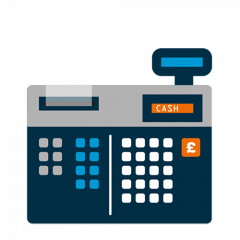Who: Italian Parliament
Where: Italy
When: November 2016
Law stated as at:
What happened:
The launch of a national lottery linked to till receipts
The Italian Budget Law for 2017 establishes a new national lottery associated with till receipts or invoices (article 67 paragraphs 3 – 7), in order to encourage consumers to ask for official receipts or invoices for all goods and services that they have paid for. The new rules will apply from 1 January 2018.
For the purposes of the tax lottery, purchases of goods or services are only eligible through retailers and subjects who pay VAT and have opted for the electronic transmission of income details to the Italian tax authorities.
In addition, participants can only be individual consumers resident in Italy that request the inclusion of their own Italian tax identification number in their till receipts or invoices, in order for the till receipts or invoice to be eligible for the tax lottery.
A decree of the Ministry of Finance will set out in detail the technical requirements and the rules, including the potential prizes, for the new lottery.
A similar national lottery, known as the Factura da Sorte (Lucky Invoice), was approved by the Portuguese government in 2014, following similar programmes in Puerto Rico, Brazil and Slovakia.
Superenalotto Auction
The Italian Budget Law for 2017 also provides, at article 73, the terms of the auction procedure in relation to the right to operate SuperEnalotto and accompanying games Superstar, SiVinceTutto SuperEnalotto, Vinci per la Vita-Win for Life and Eurojackpot. The right to operate all of these games is currently held by Sisal SpA.
The Italian Budget Law details that the management and operation of the games will be granted to one or more entities that have previous experience in the field, the technical-infrastructure capacities indicated in the technical bid specifications, a registered office within the European Economic Area and are able to meet the requirements relating to technical and economic reliability. In addition, the operator will be chosen through an open, competitive and non-discriminatory bid procedure.
Some of the details provided in the bid procedure provide that:
- selection will be based on the best financial offer (with a starting price of €100 million);
- the licence will be for a non-renewable term of nine years;
- the winning bidder will have the right to use the telecom network dedicated to the management of the games, subject to the approval of the gambling regulator;
- the winning bidder will be obliged to make technological updates to the network systems and gaming terminals to guarantee maximum security and reliability, according to the investment plan which forms part of the technical offer; and
- the winning bidder will be obliged to make an annual payment to the Italian tax authorities of any sums that were not invested in line with the investment plan and of the sums charged to it, further to any violations of the provisions of the bid procedure.
Why this matters:
The establishment of the national lottery linked to till receipts aims to reduce the gap between the VAT that is actually collected and the revenue that should flow into Italy’s coffers. According to studies carried out on lotteries, the possible pay-out should help overcome the frictional relationship between buyers and sellers where in some areas, the request for a receipt is unacceptable to the sellers.
The proposal has been criticised by some who believe that the lottery sends out a negative message because it rewards those who do their duty and at the same time encourages gambling and therefore argue that this is an ineffective solution.
In regards to the auction for the allocation of Superenalotto, it will be interesting to see if an operator other than Sisal SpA (possibly Lottomatica / IGT) manages to win the licence and if so, whether any anti-trust (competition) issues will arise.








